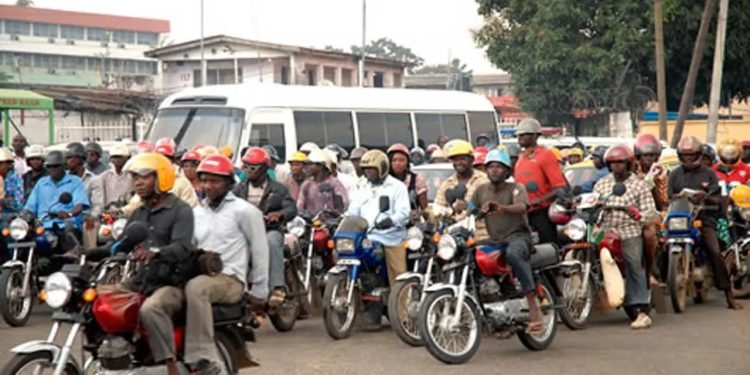By Hassan Osman Kargbo
In a recent press conference, Dr. John Martin Senesi, the Director of Operations for the Sierra Leone People, announced a set of measures aimed at regulating the use of commercial motorbikes in the major streets of Freetown. The decision, aimed at improving road safety and reducing congestion, has sparked considerable backlash among motorbike riders, many of whom rely on bikes for their livelihood and daily commutes.
The new regulations prohibit commercial motorbike riders from accessing key thoroughfares in the capital city, a move intended to streamline traffic and reduce accidents. However, this blanket ban has raised serious concerns among riders, who argue that it undermines their ability to earn a living and navigate the city efficiently.
With Freetown’s already congested roads, the prohibition on using major streets could lead to longer travel times and diminished income for those who depend on the motorcycle taxi system, known locally as “Okadas.”
Mohamed Sesay, a bike rider based in Calaba Town, expressed his dissatisfaction with the ruling. In an impassioned statement, he urged authorities to reconsider the ban. “This decision will significantly affect our movement and our ability to earn a living,” Sesay said. “We are the backbone of transportation in Freetown, and restricting us to back roads is not practical.” He emphasized that many residents rely on bike services for quick and affordable transportation, and without access to main thoroughfares, riders would struggle to meet demand.
Another rider, Mamadu Turay from Congo Water, echoed the forgoing sentiments, labelling the police decision as “unfair.”
Turay argued that commercial motorbikes provide an essential service in a city grappling with traffic woes and limited public transportation options. “If they want to keep us off the major roads, they need to provide alternative measures or support for us,” he insisted. “We are not simply reckless riders; we are contributing to the economy by providing vital transport services.”
Critics of the ban argue that it fails to address the underlying issues of traffic congestion and road safety. Instead of outright restrictions, they suggest that the government invest in more sustainable public transport solutions and infrastructure improvements. Enhanced training programs for riders and better enforcement of existing traffic regulations could lead to safer roads without crippling the livelihoods of hundreds of commercial motorbike riders.
As the debate unfolds, okada riders are concerned about the long-term implications of the ban. With protests and demonstrations anticipated in the coming days, the police and city officials may need to engage in further dialogue with the rider community to arrive at a balanced solution that considers both public safety and the economic realities faced by commercial motorbike operators.
In conclusion, the recent decision to restrict motorbike access to major streets in Freetown has ignited a firestorm of controversy. As stakeholders grapple with the consequences, it becomes increasingly clear that a more collaborative approach is necessary to address the challenges of urban transportation without compromising the livelihoods of those who serve this critical sector.











